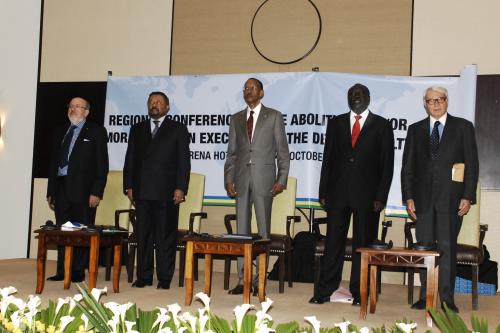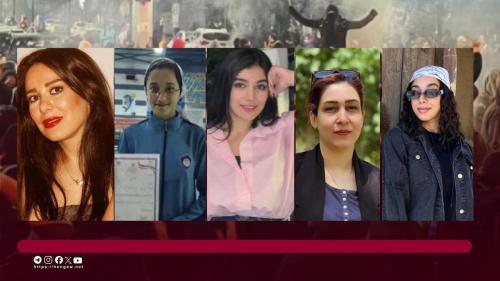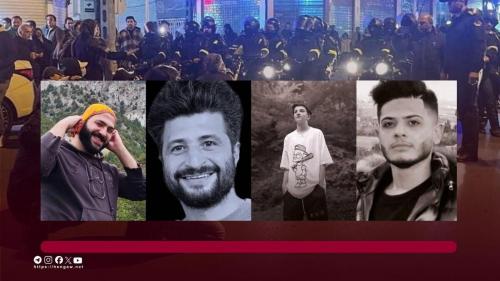13 May 2017 :
- In October 1995, Hands Off Cain organised, in association with the Arab Institute for Human Rights, the first Arab conference on the death penalty. Parliamentarians, intellectuals and jurists participated in the meeting. Following two days of debate, the Conference concluded in its summing up that there were no obstacles to the abolition of the death penalty in Arab culture and legislation. A delegation from Hands off Cain had talks with the President of the Tunisian Parliament and the Minister of Justice, both of whom were prepared to meet the requirements of the international community concerning capital punishment. National public opinion was not ready to abolish the death penalty, but international pressure from the UN would positively influence the abolitionist process. In 1997, 1998 and 1999, Bosnia-Herzegovina, Mali, Guinea, Tunisia, Morocco and Senegal were the Muslim African countries that at the Commission on Human Rights in Geneva disassociated themselves from the Islamic Conference´s "no" to the Italian resolution for a moratorium on executions, and either cosponsored the resolution or abstained from the final vote on it.
- In November 1996, Hands off Cain together with Memorial, the Commission for Human Rights and the Presidential Clemency Commission, organised a conference in Moscow, attended by parliamentarians from the Duma and by organisations campaigning for the abolition of the death penalty. Participants in the Conference explained Russia´s approach to capital punishment and called on the presidents of CIS countries to promote moratoria on executions. In its summing up, the Conference denounced the extremely serious conditions in Russian prisons, stressing that life imprisonment was not a viable alternative to the death penalty.
- At the end of February 1997, the then President Boris Yeltsin signed Protocol No. 6 to the European Convention on Human Rights, concerning the abolition of the death penalty. Today, there are neither death sentences nor condemned prisoners in Russia, because in February 1999 the Constitutional Court ordered tribunals throughout the country not to pronounce capital sentences, and in June 1999 former President Boris Yeltsin issued a decree commuting the 716 death sentences pending to life imprisonment or 25 years.
- In March 1997, Hands off Cain organised an EU-sponsored Conference in New York, together with the Italian Cultural Institute and with Fordham University, where the proceedings took place. For the first time, European and American abolitionists met to exchange views on the death penalty. The most fervent American abolitionists - including former Governor of New York Mario Cuomo - professors, jurists, and lawyers who fight to see that justice is done in individual cases decided to join the campaign for the moratorium. In 1997, the American Bar Association launched a nation-wide campaign for a moratorium on executions. In 1999, Governor George Ryan of Illinois put in place a moratorium on executions, and began a series of public hearings to study the various aspects of the application of the death penalty.
- In March 1998, Hands off Cain organised at the UN building in Geneva a Conference entitled "The United Nations Against the Death Penalty", under the auspices of the UN High Commissioner for Human Rights Mary Robinson, on the same day that the Italian resolution was submitted to the UNCHR. Speakers included Sister Helen Prejean, author of the best seller Dead Man Walking and a 1998 Nobel Peace Prize candidate. On 3 April 1998, the UNCHR approved for the second year running a resolution that created a precedent by explicitly called for "a moratorium on executions with a view to the complete abolition of the death penalty".
- In November 1998, Hands off Cain was invited to a Conference, held from 13-15 November 1998, at Northwestern University in Chicago to report on European and international initiatives for the abolition of the death penalty, and other initiatives concerning the United States. Since capital punishment was reintroduced in the U.S. in 1976, 89 condemned prisoners have been found innocent prior to their execution. Thirty of them told their stories to the 2,000 people attending the Conference.
- In February 1999, Hands off Cain organised a Conference entitled "Rome, Geneva, New York: Towards a UN Moratorium on Executions", at New York University. Participants included government representatives from the UN, personalities from the world of culture and entertainment, and American abolitionists. The permanent UN representatives of Germany and Finland announced that the European Union would present a resolution for a moratorium on executions at the General Assembly.
- In October 1999, Hands off Cain, the Sant´Egidio Community and Columbia University, organised a Conference entitled "Towards a UN Moratorium on Executions", at the Italian Academy in New York, to coincide with the opening of the proceedings at the UN General Assembly. The Conference was attended by jurists, intellectuals, representatives from international bodies and non-governmental organisations, lawyers and former condemned prisoners.
- April 2003: Hands Off Cain organised a briefing in support of the resolution presented by Greece as EU term-president and calling for a moratorium on judicial executions. It took place at the UN Palais des Nations in Geneva. Participants at the event were Enrico Pianetta of the Italian Senate's Human Rights Commission, Minister Fallavollita, the Italian Foreign Office Human Rights Representative, Elisabetta Zamparutti of Hands Off Cain, Leroy Orange, exonerated from Illinois' death row, Steven Block, Orange's lawyer, Ray Krone, the 100th person to be exonerated from the United States' death rows, Marielle Pun, Falun Gong practitioner and Rev. Melody Smith, executive director of the Restorative Justice Centre for Capital Cases.
- February 2004: Hands off Cain, within the framework of a project supported by the EU, organised a Conference entitled “Moratorium on capital executions”, in Rome. After the setback in 2003, when Italy, as term-president of the European Union, decided against presenting a resolution for a worldwide moratorium on executions to the UN General Assembly, the Conference re-launched the campaign for the presentation of a resolution for a moratorium at the United Nations General Assembly with initiatives aimed mainly to support, in a context of democratisation and the fight against impunity, a campaign for a pan-African moratorium on executions. The Conference proposed to achieve this through lobbying politically and symbolically significant parliaments, regional conferences or missions to target countries and campaigns to raise public awareness.
- April 2004: Hands Off Cain, in partnership with the National Coalition of Criminal Defense Lawyers (NACDL) and with the support of the EU Commission, organised the Conference a “UN moratorium on capital executions” at the Palais des Nations in Geneva. The goal of the conference was to support the resolution presented by Ireland as EU Presidency and calling for a moratorium on capital executions. The participants included former Governor of Illinois George Ryan, Hands Off Cain treasurer Elisabetta Zamparutti, NACDL Secretary John Wesley Hall, Co-President of the NACDL International Affairs Committee and Hands Off Cain board member Speedy Rice, Falun Gong spokesperson Erping Zhang and Chinese political dissident Wei Jinsheng.
- December 2007 – Libreville (Gabon) – Hands off Cain organized a conference on the UN moratorium on executions, in partnership with the Government of Gabon, under the patronage of President Omar Bongo Ondimba and with the financial support of the Dutch Government. The conference was addressed to African countries and was attended by representatives of Burundi, Democratic Republic of Congo, Djibouti, Gabon, Mali and Rwanda. The conference was held in Libreville on December 10 and 11, on the international day for Human Rights and a week before the vote on the resolution for a universal moratorium by the UN General Assembly. The conference ended with the adoption of the Libreville Declaration that launched a solemn appeal to the member states of the African Union and the UN to support the resolution for the Moratorium on capital punishment. The participants made a commitment to support the international campaign of Hands Off Cain for the universal Moratorium, so that all the countries and territories definitively abolish capital punishment. Commitments were also made to the defense of peace through respect by the State of rights on a national and international level.
- October 2011 – Kigali (Rwanda) - Hands off Cain in partnership with the Government of Rwanda – in the framework of a project supported by the EU Commission – organized on 13 and 14 October 2011 in Kigali, a conference on the death penalty in Africa. The conference was attended by representatives of 20 African countries (from south, central and east of the continent) who took great inspiration by the case of the abolition of the death penalty in Rwanda. The conference was opened by the intervention of the President of Rwanda Paul Kagame, the President of the African Union Commission Jean Ping, the co-persidente Parliamentary Assembly ACP-EU Louis Michel, the Honorary President of Hands Off Cain Aldo Ajello and the Minister of Justice of Rwanda Tarcisse Karugarama. The conference ended with the unanimous adoption of the Declaration of Kigali calling African countries to sign and support treaties and international resolutions on the death penalty and the moratorium on executions, with a commitment by the governments to transpose the contents into the legislations of each country. Particularly important and significant is the request to aspire to the principles of “rehabilitative justice.” Some of the countries attending the Conference, such as Chad and Central African Republic, voted in favor of the pro-moratorium resolution approved by the UN General Assembly in 2012 and have also promoted internal processes towards abolition.
- January 2014 – Free Town (Sierra Leone). Hands off Cain in partnership with the Government of Sierra Leone – in the framework of a project supported by the MFA of Norway – organized on 13 and 14 January 2014, a regional conference on the death penalty in Africa. The conference was opened by the intervention of the President of Sierra Leone Ernest Bai Koroma, followed by speechs by Ministers for Foreign Affairs and Justice Samura Kamara and Frank Kargbo, who reiterated their commitment to the abolition starting with the constitutional review process in progress. Among other participants there were: Minister for Foreign Affairs of Benin Nassirou Bako Arifari, il Minister of Justice of Niger Amadou Marou, vice Minister of Juatice of Rwanda Pascal Bizima Rugnanintwali, and representatives of Ministers of Justice of Mali and Togo, other than MPs and NGOs representatives from Liberia, Burkina Faso, Niger, Mali, Ghana and Guinea.
The Conference has approved a Final Declaration which engages delegates and participants to mobilize all African states to define an Additional Protocol to the African Charter on Human and Peoples’ Rights regarding the Abolition of the Death Penalty, to urge them to co-sponsor and vote in favour of the Resolution calling for a worldwide moratorium on executions at the 2014 UN General Assembly, and to convene before the UN vote another continental conference, possibly in Benin, to prepare for that. - July 2014 – Cotonou (Benin). Hands off Cain in partnership with the Government of Benin and the Commission on human and people’s rights of the African Union promoted and organised, with a financial support of the Italian MFA, the Continental conference on the abolition of the death penalty in Africa, from 2 to 4 July 2014. The conference was opened by the intervention of Monister for Foreign Affairs of Benin Bako-Arifari Nssirou who confirmed the will of his country to play a role of leadership at continental level against the death penalty and promotion of human rights also in view of the vote at the UN on the new Resolution for a universal moratorium on capital executions. The three days conference was convened also with a view to the adoption of an African Protocol on the death penalty.








